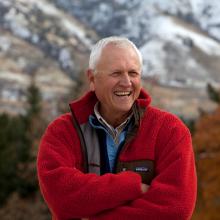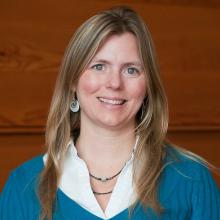Monday, September 10, Rooms 308 – 313
Plenary Session at a glance:
9:00 - 9:05 Welcome
Randy Fiorini, Delta Stewardship Council
9:05 - 9:15 Introductions
Ted Sommer, California Department of Water Resources
Alex Parker, California Maritime Academy
9:15 - 9:30 Bay-Delta Science: Looking Towards 2020
John Callaway, Delta Science Program
9:30 - 10:00 Policy Leadership in the Glen Canyon Dam Adaptive Management Program: Stakeholders or Science?
Jack Schmidt, Utah State University
10:00 - 10:15 Government Science at a Crossroad: Creating a Future of Enhanced Relevancy and Impact
Mark Sogge, United States Geological Survey
10:15 - 10:35 Brown-Nichols Science Award
10:35 - 10:55 Break
10:55 - 11:25 Integrating Social Science in Large Estuarine Restoration
Kelly Biedenweg, Oregon State University
11:25 - 11:55 Communicating Science in a Post-Truth World
Amy Mathews Amos, COMPASS
11:55 - 12:10 Art and Science
Please click here for the full conference program.
ABSTRACTS
Dr. John Callaway
Lead Scientist, Delta Science Program
Bay-Delta Science: Looking Towards 2020
While the Bay-Delta system already is a “devilishly wicked problem”, it faces growing challenges moving into the next decade including climate change and more. In order to address these challenges, we need to continue conducting science that provides insight for decision making and that improves our overall understanding of the system so that we can identify upcoming challenges on the horizon. Some important steps towards improving our scientific vision include: providing stable funding for science, addressing science governance issues, engaging social scientists, and crossing the Bay-Delta watershed divide. Progress is being made in each of these areas; however, major challenges remain. Science funding must be sustainable and dependable in order to provide useable science, both immediately and with a longer term vision. Governance issues are being incorporated into the updated Delta Science Plan, but this issue will need broader discussion and a long-term commitment to achieve meaningful improvements. Incorporating social sciences into the research agenda within the Delta is critical on a variety of fronts, and recent efforts address this issue, including the Delta Science Program’s newly proposed Social Science Task Force. Connecting science from the Sierra to the Sea has many supporters but coordinating efforts in a meaningful way will require identifying strategic areas for collaboration given funding and resource constraints across the entire system.
 Dr. John (Jack) C. Schmidt
Dr. John (Jack) C. Schmidt
Janet Quinney Lawson Chair in Colorado River Studies, Utah State University
Policy Leadership in the Glen Canyon Dam Adaptive Management Program: Stakeholders or Science?
The Glen Canyon Dam Adaptive Management Program (GCDAMP) was created in 1997 as a federal advisory committee whose purpose is to make recommendations to the Secretary of the Interior regarding operations of Glen Canyon Dam. Stakeholders who serve as official committee members represent the seven Colorado basin states, 5 tribes with spiritual or cultural connection to the Grand Canyon, and representatives of river-based recreation, hydropower consumers, and environmental advocacy. Stakeholders have many different perspectives regarding the goals of ecosystem management and have articulated different desired future conditions for the river corridor in Grand Canyon National Park. The different goals offered by different stakeholders lead to differences of opinion regarding the most significant scientific questions that ought to be addressed by the GCDAMP and its science support arm – the USGS/Grand Canyon Monitoring and Research Center. Because the interests of some stakeholders benefit by significant changes in reservoir operations and the interests of other stakeholders benefit by maintenance of the status quo, tension and disagreement arises as to what questions in applied science are the most significant and ought to be addressed. To date, most major policy initiatives began as issues identified and pursued by river scientists. Thus, scientists play an important role in interpreting the policy concerns of stakeholders and translating those concerns into tractable questions that can be addressed within reasonable time frames. Scientists also have an obligation to help stakeholders understand that some policy concerns cannot be answered within the existing framework of water supply agreements or within the time frames of stakeholder concerns. A dynamic tension will always exist between the river science community who is expert in the identification of critical uncertainties that limit the effectiveness of management actions and the stakeholder community that has many different values and objectives for the outcome of management actions.
Mark Sogge
Regional Director, USGS Pacific Region
Government Science at a Crossroad: Creating a Future of Enhanced Relevancy and Impact
Government-based science is at a fundamental crossroad, both in the Bay-Delta and across the Nation. Never have the tools of science been so powerful in terms of the amount and diversity of data that can be measured, our ability to transmit and analyze that information, and the variety of ways that we can communicate the findings. On the other hand, our science agencies and efforts are faced with ever-greater demands and challenges. The questions being asked in order to understand and solve problems are growing more complex, at the same time agencies are facing growing budget pressures. At a societal-scale, we see declining public trust in science, greater expectations for fast answers and return on investment (ROI), and increased questioning and challenging of findings. New laws and policies require greater transparency, data sharing, and review. These drivers and opportunities affect our science policies, practices, and people. Moving forward, we must find ways to continue delivering independent, high-quality science and to do so more rapidly and broadly, and communicate in ways that are more understandable and applicable. For a variety of reasons, these tasks are not inherently easy for scientists or science organizations, and may make any given science effort take longer and cost more. But if done right, such an approach will increase the relevance and impact of science. It can provide a foundation for more effective solutions and greater decision space for resource and management agencies, without straying into advocacy for specific policy or management actions. And importantly, it can demonstrate the very positive return that science can provide as we move into an increasingly complex and dynamic future.
 Dr. Kelly Biedenweg
Dr. Kelly Biedenweg
Assistant Professor of Human Dimensions, Oregon State University; Lead Social Scientist for the Puget Sound Partnership & Institute
Integrating Social Science in Large Estuarine Restoration
The need to integrate social science for restoration is no longer a debate. How to do so, however, remains an enigma to many. Dr. Biedenweg will present her work with Washington State’s Puget Sound Partnership to integrate social science in planning and monitoring the restoration of the Puget Sound basin. The work includes identifying, adopting, and monitoring indicators of human wellbeing along with ecological metrics of restoration success; using decision tools with watershed and basin planning groups to integrate best available social science when developing strategic plans; and supporting research to better inform linkages between social and ecological trends. The presentation will describe the thinking and process for achieving these goals, and the successes and pitfalls along the way. Throughout the talk, Dr. Biedenweg will identify key social scientific concepts relevant to large-scale ecosystem restoration.
Amy Mathews Amos
Science Communication Coach, COMPASS
Communicating science in a post-truth world
Communicating your science is often intimidating to scientists, but in the post-truth era we find ourselves in now, it is more important than ever. What makes people more or less likely to accept new information? How can you, as a scientist, build trust when there is political polarization or when trust has broken down? How can you engage in meaningful dialogue and communicate across differences? In this engaging and lively talk, we’ll discuss these themes, highlight stories of scientists who have effectively engaged, and focus on skills to successfully communicate with various audiences.
